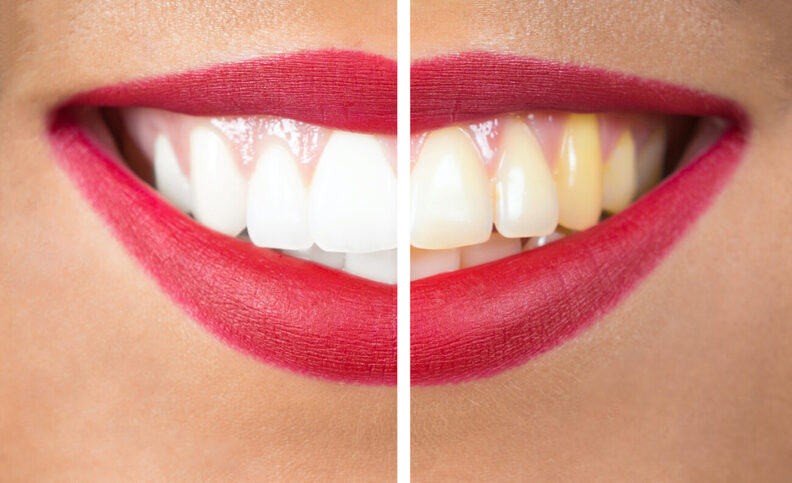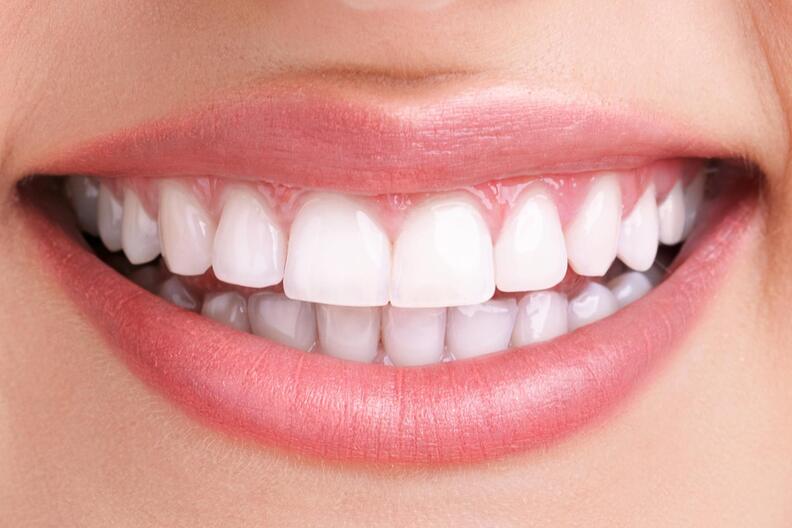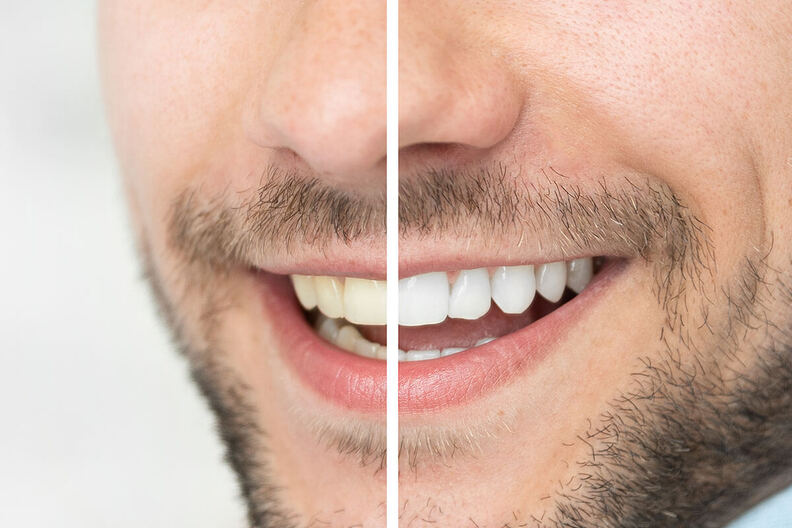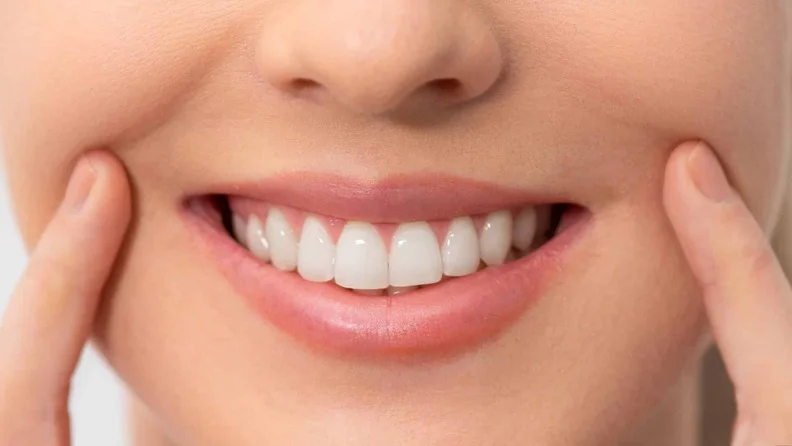Teeth whitening has become one of the most requested cosmetic procedures in modern dental clinics. While it provides a brighter smile in a short time, the way you care for your teeth after whitening directly determines how long the results will last and how good they will look.
At Al Safwa Medical Center in Baniyas, Abu Dhabi, our doctors follow precise post-whitening protocols using internationally approved materials such as Emax veneers, laser whitening, and advanced chemical gels.
This article covers essential aftercare steps, common mistakes to avoid, and expert tips from Al Safwa’s cosmetic dentists to help you maintain a whiter smile for longer, with minimal sensitivity or side effects.

Why Do Teeth Need Special Care After Whitening?
Whitening relies on oxidizing agents such as hydrogen peroxide or carbamide peroxide. These penetrate the enamel to break down deep stains, but in the first hours and days post-whitening, your teeth become more porous and prone to staining or thermal sensitivity.
Foods and Drinks to Avoid After Whitening
For the first 48 hours, Al Safwa dentists recommend following the “white diet” consuming only foods and drinks free of pigments.
Strictly avoid:
- Coffee and tea (all types).
- Colored juices like pomegranate and berries.
- Dark sodas.
- Sauces such as soy or tomato sauce.
- Smoking in all forms.
- Allowed options:
- Milk and yogurt.
- White rice and plain pasta.
- Boiled potatoes.
- Grilled chicken or fish (without colored spices).
Following this simple rule during the first two days greatly reduces the risk of new stains.
Managing Sensitivity After Whitening

Temporary sensitivity is common, especially in patients with gum recession or old fillings. At Al Safwa, we use products with potassium nitrate and fluoride to reduce discomfort.
Practical tips:
- Use toothpaste for sensitive teeth (e.g., Sensodyne, Colgate Sensitive Pro-Relief).
- Avoid very cold drinks or very hot food in the first two days.
- Apply a fluoride gel prescribed by the dentist with a custom tray.
Sensitivity usually resolves within 48 hours. If it persists, a dental checkup is advised to rule out cavities or gum problems.
Brushing After Whitening: When to Start?
Dentists recommend waiting at least 4 hours before brushing your teeth after whitening, since the enamel is temporarily softened.
After that:
- Use a soft-bristled toothbrush to avoid scratching the enamel.
- Choose fluoride toothpaste to aid remineralization.
- Rinse with 0.12% chlorhexidine mouthwash to reduce bacterial buildup.
How Long Do Whitening Results Last?
It depends on:
- Diet and lifestyle.
- Compliance with aftercare instructions
- Natural enamel structure
On average, results last 6 months to 2 years. At Al Safwa, we recommend follow-up visits every 6 months for professional cleaning (scaling & polishing) and evaluation. A short touch-up session may be advised if early staining appears.
Common Mistakes That Ruin Whitening Results

Based on our clinical experience, patients often shorten the results by:
- Drinking coffee or smoking within 24 hours
- Overusing unapproved home whitening kits with high concentrations
- Using charcoal or DIY remedies that scratch enamel
- Ignoring gum health issues such as gingivitis or periodontal pockets
- Avoiding these mistakes is key to long-lasting whitening results.
Combining Whitening With Other Treatments?
Yes, but timing matters. At Al Safwa, we follow strict protocols:
- Orthodontics (Invisalign/Braces): Whitening is done after treatment is complete.
- Veneers (Emax): Whitening first, wait two weeks, then prepare teeth for veneers.
- Dental implants: Whitening is done before selecting the crown shade to ensure a perfect color match.
How Dentists Help Maintain Results
Post-whitening care at Al Safwa includes:
- Before-and-after photos to track changes
- Regular evaluation for sensitivity or staining
- Prescribed low-concentration home whitening gels for maintenance
- This teamwork between professionals and your home care routine helps keep your teeth naturally brighter for a longer time.
Five Golden Tips for Post-Whitening Care
- Stick to the “white diet” for 48 hours.
- Brush with a soft toothbrush and fluoride toothpaste.
- Rinse with water after eating pigmented foods.
- Avoid smoking and reduce dark beverages.
- Visit the dentist every 6 months for cleaning and follow-up.
Frequently Asked Questions About Teeth Whitening Aftercare
1. How long should I avoid coffee after teeth whitening?
It’s strongly recommended to avoid coffee and other dark-colored beverages for at least 48 hours after your whitening treatment. During this time, your tooth enamel is more porous and highly susceptible to absorbing stains, which can quickly reverse your results. To maintain your brighter smile, follow a “white diet” consuming light-colored foods and drinks like milk, yogurt, white rice, and clear broths during the first two days post-treatment.
2. Is it normal to experience tooth sensitivity after whitening?
Yes, temporary sensitivity is very common after teeth whitening. This occurs because whitening agents like hydrogen peroxide penetrate the enamel and reach the underlying dentin, making your teeth more responsive to temperature changes. Sensitivity typically subsides within 24 to 48 hours. You can manage it by using a desensitizing toothpaste (such as Sensodyne) or a fluoride gel prescribed by your dentist to soothe the nerves and strengthen your enamel.
3. When can I brush my teeth after whitening?
We recommend waiting at least 4 hours before brushing your teeth after a whitening session. Immediately after treatment, your enamel is in a temporarily weakened state, and brushing too soon may cause irritation or micro-abrasions. Once the waiting period is over, gently brush with a soft-bristled toothbrush and a fluoride-rich toothpaste to help remineralize and protect your teeth.
4. How long do teeth whitening results last?
Whitening results typically last anywhere from 6 months to 2 years, depending on your lifestyle, oral hygiene habits, and dietary choices such as smoking, drinking coffee, or consuming red wine. To extend the results, we recommend professional dental cleanings every 6 months and occasional touch-up treatments using dentist-approved at-home whitening products with a low concentration of whitening agents.
5. Can I whiten my teeth if I’m wearing braces or planning to get veneers?
Yes, but timing is key. If you’re undergoing orthodontic treatment (with braces or Invisalign), it’s best to wait until treatment is complete before whitening. This ensures an even color across all teeth, as brackets can cause uneven staining or shading. If you’re planning to get porcelain veneers (like Emax Veneers), whitening should be done first. After waiting about two weeks for the color to stabilize, your dentist can match the veneers perfectly to your newly whitened smile for a natural, uniform appearance.
Teeth whitening aftercare is not just general advice, it’s a medical protocol designed to protect enamel and prolong results. At Al Safwa Medical Center Baniyas, Abu Dhabi, our dentists combine cosmetic and preventive expertise to provide customized solutions for each patient, ensuring a healthy, radiant smile that lasts.

